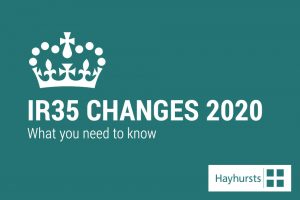IR35 Advice for Self-employed and Employers
It’s not the sexiest of subjects, sure – but if you’re here, it means you need to know what IR35 is and what it means to you, and before April 2020. So let’s talk IR35, and try and get your head around this pesky piece of legislation, once and for all.
What is IR35?
IR35 is the HMRC legislation that is used to determine if an individual working for a business is classed as employed or self-employed.
Why does IR35 matter?
There can be a significant difference in cost (to the individual and/or business) dependant on whether they are considered an employee or not. If IR35 applies, HMRC could apply tax and National Insurance, potentially retrospectively, as if that individual had been employed on the business payroll.
What are the changes to IR35 in 2020?
New rules are coming into place from April 2020 which places the burden of responsibility on to the business that has engaged the individual to establish whether IR35 applies.
When does IR35 apply?
If HMRC take the view that an individual and business are working in an employee and employer type relationship, then this is seen to be as inside IR35. There are a number of factors that should form part of the assessment, such as:
- Does the individual work for more than one business?
- How long typically are the engagements?
- Could the individual have a substitute perform the task which the business accepts?
- Does the individual work under their own guidance (i.e. they are not controlled/directed by the business)?
- Does the individual have any right to holiday or sick pay?
- Are there set start, end and break times?
- Who provides the equipment for the individual to use in their role?
- Is the individual seen as part of the business?
What happens if IR35 does apply?
If the business assesses that IR35 does apply, then they will have to apply tax and national insurance to the amount paid to the individual.
What happens if we get it wrong?
If you don’t correctly classify an engagement as falling within IR35, HMRC can investigate and insist on retrospective payment of taxes that would have been paid as well as fines.
Do all businesses need to do this?
No – currently the revised regulations are only applicable to medium and large businesses (as defined by the Companies Act). Small businesses are therefore exempt from the new regulations although individuals contracting through an intermediary still need to consider their status under IR35 as before.
Need IR35 Advice?
If you need more advice regarding the changes to IR35 in 2020, then please contact Hayhursts. We can help you.







